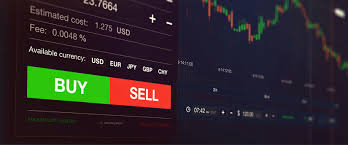
Understanding Demo Trading Accounts in Forex: A Complete Guide
In the ever-evolving landscape of the financial markets, demo trading account forex Trading JO has made it easier for novice traders to get a taste of trading without the risks associated with real-money accounts. This is where demo trading accounts come into play. A demo trading account allows individuals to practice their trading skills and strategies using virtual currency in a simulated market environment. In this article, we will delve into what demo trading accounts are, their advantages and disadvantages, and tips on how to make the most of them. This knowledge is essential for anyone looking to succeed in currency trading.
What is a Demo Trading Account?
A demo trading account is a simulated trading platform offered by Forex brokers that allows traders to practice their trading skills without the risk of losing real money. It provides an environment where traders can familiarize themselves with the trading platform, test different strategies, and understand market behavior using virtual money. Most brokers offer demo accounts with features similar to real trading accounts, including live market quotes, margin requirements, and a wide range of trading instruments.
Benefits of Using a Demo Trading Account
Risk-Free Environment
The primary advantage of a demo account is the ability to trade in a risk-free environment. As traders utilize virtual funds, they can experiment with different strategies, learn how to navigate the trading platform, and become familiar with the trading process. This aspect is particularly beneficial for beginners who might be intimidated by the complexities of real trading.
Developing Trading Strategies
With a demo trading account, traders can develop and test various trading strategies without the financial pressure of real trading. They can analyze which strategies work best for them and optimize their trading approaches based on real-time feedback and historical data provided by the demo platform.
Understanding Market Conditions
A demo account allows traders to observe market conditions and learn how to react to them. They can practice identifying trends, support and resistance levels, and other crucial market indicators. This understanding is vital for making informed trading decisions in real trading.
Emotional Control
One of the most significant challenges traders face is emotional control. Trading with real money can lead to increased anxiety, fear, and greed, adversely affecting decision-making. By starting on a demo account, traders can cultivate discipline and learn to manage their emotions without the pressure of financial loss.
Disadvantages of Demo Trading Accounts
False Sense of Security
While demo trading accounts offer a safe environment for learning, they can also create a false sense of security. Traders may become overly confident in their abilities, mistakenly thinking that they can easily replicate their demo success in live trading.

Lack of Emotional Involvement
Trading with virtual money does not induce the same emotional reactions as trading with real cash. Consequently, when traders transition to live accounts, they may struggle to handle the emotional aspects of trading, such as fear of loss or the thrill of a winning streak.
Market Conditions Discrepancies
Demo accounts often use live market data, but there can be discrepancies in execution, spreads, and slippage compared to actual trading conditions. This difference can lead to unrealistic expectations regarding trading performance in real markets.
Making the Most of Your Demo Trading Experience
Set Clear Objectives
Before starting with a demo account, it is crucial to set clear objectives. Determine what you want to achieve, whether it’s learning the platform, testing strategies, or becoming familiar with market conditions. Having specific goals will help you measure your progress and keep you focused.
Trade as If You Were in a Live Account
To maximize the benefits of a demo trading account, treat it as if it were a live trading account. This means setting realistic trading goals, following a trading plan, and implementing risk management strategies. It’s crucial to apply discipline and emotional control as though you were trading with real money.
Experiment with Different Strategies
A demo account serves as an ideal testing ground for various trading strategies. Use this opportunity to explore different approaches, timeframes, and trading styles. Monitor the results and analyze the performance of each strategy to identify what works best for you.
Record and Review Your Trades
Documenting your trades is vital for learning from your experiences. Keep a trading journal where you can record your successes and failures, analyze your decision-making process, and reflect on areas for improvement. Reviewing your trades can provide valuable insights and help you refine your trading skills.
Transitioning to a Live Account
After gaining sufficient experience on a demo account, the next step is transitioning to a live trading account. This process can be daunting, so it’s essential to approach it with a well-defined strategy. Consider starting with a small amount of capital to mitigate risks while still gaining the experience needed in a real trading environment. Gradually scale up your trading size as your confidence and skills improve.
Conclusion
Demo trading accounts are an invaluable resource for both novice and experienced traders looking to hone their skills without financial risk. They offer a risk-free environment to learn, experiment, and develop essential trading strategies. However, it’s important to stay grounded and recognize the differences between demo and live trading. By using demo accounts wisely and transitioning thoughtfully to live trading, traders can significantly increase their chances of success in the Forex market. Happy trading!

